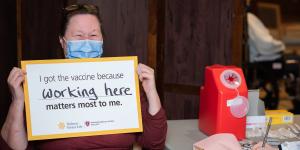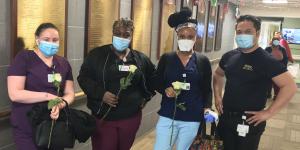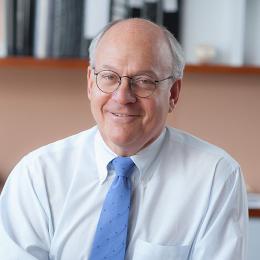Standing Together to Serve Seniors
Last month I was in Memphis, Tenn., attending the Association of Jewish Aging Services annual conference. The conference coincided with the anniversary of the assassination of Dr. Martin Luther King, Jr., in Memphis 49 years ago. One of the conference speakers was Dr. Raphael Warnock, the reverend of the Ebenezer Baptist church in Atlanta, Georgia, which was Dr. King’s church. Dr. Warnock’s inspiring message held particular meaning for many of us who work to deliver services to older adults.
Dr. Warnock challenged us to show leadership in the face of the recent and disturbing trend toward intolerance. As he put it, “In recent days, evil has gotten some courage, and good people need to get some courage and stand up against racism, anti-Semitism, Islamophobia. Stand up against bigotry wherever it shows up.”
I agree wholeheartedly with Dr. Warnock. At Hebrew SeniorLife we value the diversity of our employees and honor and welcome residents, patients and families of all races, faiths, ethnic backgrounds, gender expression, and sexual orientations. And I would add “ageism” to the list of societal intolerances that we must resist. Our organization has a special responsibility to make sure that our Hebrew SeniorLife residents, as well as seniors in our surrounding neighborhoods and beyond have access to care and resources that support their independence and dignity, and encourage them to remain vital members of their communities.
This requires commitment and the courage to innovate, set bold goals, and never give up. The need to advocate for seniors has never been greater as the social safety net that serves them has begun to fray and funding for services, particularly those targeting low-income seniors, is increasingly uncertain. Among cuts under consideration by the current administration are $880 billion to Medicaid by 2026, $6 billion to Housing and Urban Development and $5.8 billion to the National Institutes of Health.
Now is not the time to cut funding for programs that help older adults stay healthy and maintain independence. And it is certainly not the time to retreat from investment in programs that anticipate the future needs of a growing older population and offer innovative solutions.
Many of my HSL colleagues and I hold leadership roles on professional boards, and state and federal government committees and taskforces that tackle the legislative and funding challenges that come along with trying to ensure that programs serving older adults are maintained or expanded. I urge anyone who cares for an aging loved-one, or who hopes to grow old themselves, to join us in any way possible to make sure the growing needs of seniors stay visible and part of the legislative agenda both locally and nationally.
There are many ways to get involved. Visiting the Massachusetts Executive Office of Elder Affairs is a great way to start your research. Stay in touch with your elected officials and let your voice be heard around issues that affect seniors. And finally, if you’d like a volunteer opportunity, you can always get in touch with our Director of Volunteer Services, Gail Bork.
Together let’s heed Dr. Wanock’s call and help lead the way toward a just society that welcomes and supports all of us in all our diversity.




